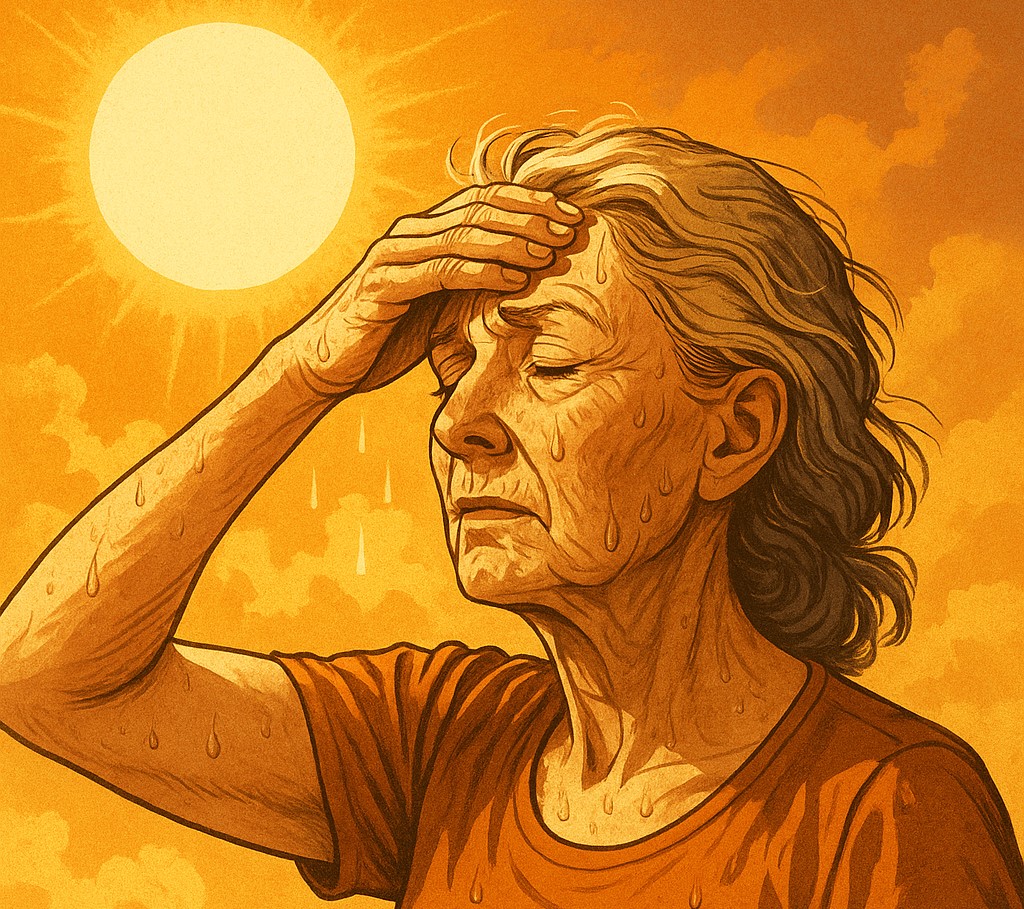Extreme heat can do more than make you sweat. According to a recent study published in the journal Science Advances, sustained exposure to heat over 80 degrees accelerates biological aging—the rate at which your body ages internally at the cellular level, regardless of your chronological age.
Researchers at the Leonard Davis School of Gerontology at the University of Southern California analyzed blood samples from 3,686 American adults aged 56 and older. By comparing biological markers of aging—specifically DNA methylation—to each individual’s local heat index, they found that prolonged exposure to heat correlates with significantly faster cellular aging.
For individuals living in areas with frequent hot days, particularly those classified as “Extreme Caution” levels (90 degrees Fahrenheit or higher), biological age accelerated by up to 14 months. In places where extreme heat occurs for half the year, some residents aged nearly three years faster at the cellular level than those in cooler climates.
“Just because you live in an area with more heat days, you’re aging faster biologically,” said Eunyoung Choi, coauthor of the study wrote. Even after controlling for socioeconomic and lifestyle variables, the link between heat exposure and biological aging remained strong.
The implications are broad. Accelerated biological aging is associated with an increased risk of chronic illnesses such as dementia, cardiovascular disease, diabetes, and respiratory problems. While heat’s impact on health has long been documented—including raised risks for heart attacks and strokes—this study ties high temperatures directly to cellular degradation.
The study further complicates how we understand personal heat thresholds. Not everyone responds to the same temperatures in the same way. A 75-degree day may feel mild, but in a dense, unshaded city center, it may pose real stress—especially at night, when the body needs to cool for rest.
And while people in hot climates may adapt over time—a phenomenon known as acclimatization—heat waves still present heightened dangers. Women between the ages of 40 and 64 may be particularly vulnerable, with responses resembling those of men 65 and older, according to a 2024 study.
Even living conditions can compound the risk. Older homes in traditionally temperate climates often lack air conditioning, making adaptation more difficult. It is recommended that individuals develop a personal climate plan—just as they might prepare a will or emergency contacts.
Preventing the health effects of heat involves behavioral changes more than medical interventions. Experts offer the following guidance:
- Stay informed. Follow weather alerts and adjust daily activities accordingly, especially during the first heat wave of the season.
- Avoid peak heat. Midday is typically the hottest period; stay indoors during these hours, ideally in air-conditioned spaces.
- Monitor medications. Some prescriptions, particularly for blood pressure or heart disease, can increase heat sensitivity. Keep medicines stored in a cool environment.
- Cool the bedroom. Nighttime heat exposure can prevent recovery and exacerbate sleep issues.
- Make a heat plan. Know where you can go to cool down if your home becomes unsafe, and what resources are available locally in a heat emergency.
Extreme heat is no longer a seasonal nuisance. For many Americans—especially older adults in parts of Florida—it has become a year-round public health threat with measurable effects on aging. As climate conditions intensify, so too may the need for personal vigilance, structural adaptation and further public health research.





